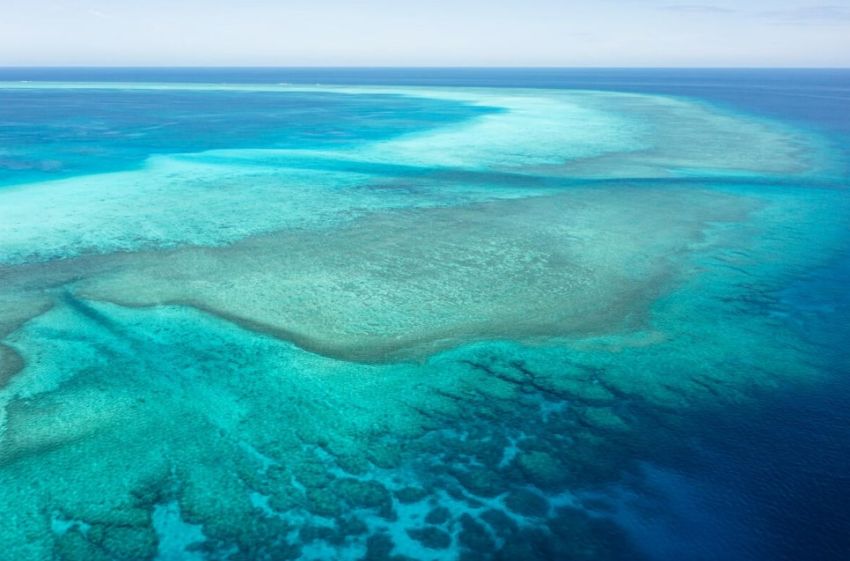
Environs Kimberley, the Environment Centre of the Northern Territory and the Conservation Council of Western Australia (CCWA) are touring the Eastern states to warn about the huge expansion of fossil gas projects in Western Australia and the Northern Territory.
Protect Country and Climate, sponsored by the Australian Conservation Foundation (ACF), are organising meetings in marginal electorates as part of its campaign to stop gas and coal mining.
Labor has already approved three coal mine expansions and is considering two major gas expansion projects — Woodside Corporation’s project at the Burrup in WA and the Middle Harbour gas hub in the NT.
Labor is also weighing up whether to give more subsidies to the NT government ($1.9 billion) for the Middle Arm gas hub to fast-track fracking in the Beetaloo Basin, and whether to allow Black Mountain, a US oil and gas company, to frack the Kimberley.
ACF spokesperson Gavan McFadzean told a meeting in Marrickville on November 14 that Australia may be the first country in the world to hit the Paris temperature limit of 1.5°C.
CCWA spokesperson Anna Chapman said if Woodside was allowed to extend its North West Shelf facility in the Burrup to Scott Reef, it would become the largest gas plant in the Southern Hemisphere.
“It will be a carbon bomb, producing 6 billion tonnes of carbon dioxide emissions by 2070. This is 13 times Australia’s current annual emissions,” Chapman said.
“Woodside can sell liquefied natural gas at a cheap price to Japan, which then sells it on to other countries. Australia receives no royalties. They pay almost no tax. Woodside are profiting for free, and we are left with the clean-up.”
In his welcome to Country, NSW Land Council’s Uncle Allan Murray reflected on scar trees and hundreds of sacred sites in the Marrickville area that needed to be protected.
Also needing protection is the ancient Murujuga rock art in the Burrup. In the 1970s, Woodside removed more than 50,000 petroglyphs and now they are being eroded by acid fumes from Woodside’s operation.
Murujuga Rocks, which contains more than 1 million petroglyphs, including images of giant kangaroos and the Tasmanian tiger, has been nominated as a UNESCO World Heritage Site.
To make its Browse project profitable, Woodside would need to ship out huge quantities of gas from export terminals at the Burrup Hub. This risks the opening the whole of the Kimberley to fracking.
Scott Reef under threat
Woodside’s Browse project involves drilling up to 50 gas wells about 2 kilometres from the edge of Scott Reef, one of several isolated atolls stretching along the coast of northern WA.
Woodside wants to pipe gas from Scott Reef, under the ocean, to the Burrup, a distance of 600 kilometres. The pristine reef would be destroyed by any well blow-out, with pollution likely to spread hundreds of kilometres.
Scott Reef is Australia’s largest oceanic coral reef. Pygmy blue whales, the green sea turtle, the dusky sea snake and the hawksbill sea turtle would all become endangered species if this fossil fuel project is given the go-ahead.
The reef is known to support 29 species of marine mammals.
Black Mountain wants to frack the Kimberley, the most intact tropical savanna in the world. Martin Pritchard from Environs Kimberley said Black Mountain has 20 gas wells already and wants at least 1500 more to exploit between $1.5–2 billion worth of gas.
First Nations culture is still strong in the Kimberley, with 30 language groups, Pritchard said. But, he added, the community of only 40,000 would need help from the east coast to stop the project. He said environment minister Tanya Plibersek could use the water trigger to stop this development.
“The Albanese government has the power to stop further gas expansion and protect the places we love … and end the climate-wrecking coal and gas [expansion].”
Gas in Darwin Harbour
Mililma May from the Danggalaba Kulumbirgin Tiwi clan spoke about the NT government’s proposed 1500-hectare petrochemical processing and storage facility — the Middle Arm Development Precinct — in Darwin Harbour.
Federal Labor is considering giving billions more to build the Middle Arm project, which is only 2 kilometres from First Nations communities and 10 kilometres from Darwin.
“It is an act of ongoing colonialism to destroy the country for profit,” May said. “The NT government is close to bankruptcy.”
US company Tamboran Resources has already been given a permit to process the gas it wants from the Beetaloo Basin. The NT government has agreed to buy Tamboran gas, even before the Beetaloo project has been approved.
Dr Louise Woodward, an NT paediatrician, said asthma and cardiovascular diseases will rise if these huge fossil fuel projects with tonnes of toxic chemicals emissions are allowed to proceed.
“Governments are partnering with large corporations to destroy our health … Gas is a silent killer, shortening people’s life span.” She said air pollution, over which there is very little regulation, causes blood cancers, especially in young children and makes diabetes harder to control. “In the NT, producers don’t have to measure air pollution levels.”
Woodward helped force a Senate inquiry into the Middle Arm project, which recommended, among other things, that the $1.5 billion federal subsidy be redirected to support clean technology industries.
Woodward said Australia currently produces more renewable energy than it can use. She said the NT could export renewables to the world, and a skilled workforce could carry out the decarbonisation.